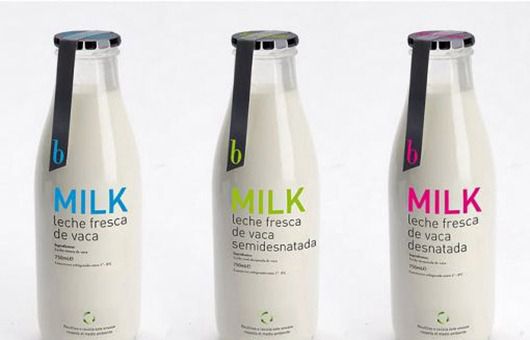研究称一天3杯奶死的快(双语)
|
Drinking more than three glasses of milk a day may not protect bones against breaking - and may even lead to higher rates of death, say researchers. A new study suggests certain types of sugars found in milk may increase inflammation and oxidative stress, which can damage body cells. But Swedish researchers said their study could not prove ‘cause and effect’ and much more research was needed before anyone would be advised to limit their milk consumption. Milk is recommended for cutting the risk of fractures because it contains calcium and vitamin D, which are vital for bone strength. However, there have been conflicting results from studies into the health benefits of milk in recent decades, with some showing it prevents heart attacks and strokes and others the opposite. Professor Karl Michaëlsson, Sweden, led a team to investigate whether the mechanism for potential harm was consumption of the sugars lactose and galactose found in high levels in milk, compared with much lower levels in other dairy products. Two large groups of 61,433 women and 45,339 men in Sweden completed food frequency questionnaires for 96 common foods including milk, yoghurt and cheese. Women were tracked for an average of 20 years, during which time 15,541 died and 17,252 had a fracture, of whom 4,259 had a hip fracture. In women, drinking more milk did not cut the risk of broken bones, says the study published in The BMJ. Men were tracked for an average of 11 years, during which time 10,112 died and 5,066 had a fracture, with 1,166 hip fracture cases. Men who drank more milk also had a higher risk of death, although much lower than in women.In contrast, eating more dairy products such as yoghurt and cheese - with a low lactose content – led to lower death rates and fewer fractures, particularly in women. Prof Sue, Head of the Department of Nutritional Sciences, University of Surrey, said the study had limitations, such as weak methods to assess lifestyle habits including bodyweight. She said: ‘Also key is that all milk in Sweden is fortified with vitamin A. This may well be an important confounding factor. Milk and dairy products in the UK provide 50-60 percent of the calcium in our diet. We know that low calcium intakes is a risk factor for osteoporosis.’ Prof Brian Ratcliffe, Professor of Nutrition, Robert Gordon University, Aberdeen, said the possible role of alcohol intake was understated given that most of the extra deaths in milk drinkers were from heart disease. Lowest milk consumption was associated with the highest consumption of alcohol, and ‘there is considerable evidence for a cardio-protective effect of alcohol at modest intakes’ he said. |









